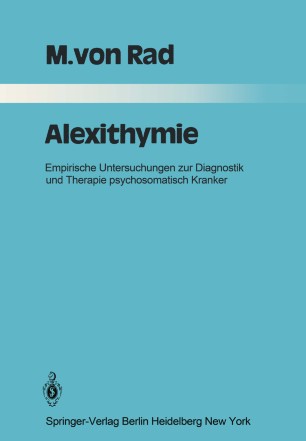The Role of Emotional Awareness in Managing Chronic Pain for Individuals with Alexithymia - An Overview

Finding Support: Effective Treatment Strategy for Individuals along with Both Alexithymia and Chronic Pain
Residing with both alexithymia and constant ache can be an surprisingly daunting encounter. Alexithymia refers to a difficulty in identifying, processing, and conveying one's emotions, while constant pain is characterized through constant discomfort that lasts for even more than three months. When these two problems exist side-by-side, they can easily dramatically influence an individual's high quality of lifestyle. Having said that, there are reliable procedure method accessible to aid those dealing with both alexithymia and severe ache.
One strategy that has presented assurance in managing people along with both alexithymia and persistent ache is cognitive-behavioral therapy (CBT). CBT concentrates on determining and modifying adverse notions and behaviors that contribute to psychological distress and physical signs and symptoms. In the instance of alexithymia and persistent ache, CBT can aid people build capabilities to much better understand their emotions, show them in healthy methods, and handle their ache efficiently.
During the course of CBT treatments, people might function carefully with a counselor who will certainly assist them via a variety of procedures such as leisure workout, mindfulness meditation, and intellectual restructuring. These procedures may help people come to be even more knowledgeable of their bodily sensations and mental take ins while teaching them how to deal along with their indicators even more effectively. By addressing both the psychological facet of alexithymia and the bodily component of chronic pain at the same time, CBT delivers a all natural technique to procedure.
Yet another effective treatment approach for people dealing along with both alexithymia and constant discomfort is recognition and devotion therapy (ACT). ACT aims to help people take challenging notions or emotional states without opinion while committing to activities straightened with their values. This strategy encourages people to create emotional flexibility by knowing how to monitor their thought and feelings without getting recorded up in them.
In the context of alexithymia and persistent ache, ACT can easily support individuals in allowing their emotional states related to both problems without attempting to decrease or avoid them. By acknowledging and understanding their emotional states, individuals may develop more healthy coping approaches and lessen the impact of their indicators on their regular lives. ACT additionally highlights the significance of establishing significant objectives and taking steps towards accomplishing them, even in the visibility of pain or mental challenges.
In add-on to psychotherapy strategy like CBT and ACT, drug management can easily be an essential part of procedure for people along with both alexithymia and chronic ache. Depending on the certain instances, medical care professionals might prescribe drugs to deal with underlying health conditions providing to persistent ache or alexithymia. For case, antidepressants or anti-anxiety drugs may be prescribed to reduce indicators associated with both disorders.
It is important for people finding therapy for alexithymia and severe discomfort to consult with along with a qualified healthcare expert who specializes in these locations. A thorough assessment are going to aid calculate the very most appropriate treatment program adapted to each person's unique needs.

Additionally, Explore more on this topic can give very useful aid for people dealing along with both alexithymia and chronic pain. Hooking up with others who share identical take ins may use validation, understanding, and a feeling of belonging. Assistance teams provide a safe room where individuals can easily share their notions and emotions without concern of judgment.
In final thought, seeking help for people living with both alexithymia and severe pain is important in boosting their overall well-being. Reliable procedure strategy such as cognitive-behavioral treatment (CBT), acceptance and devotion treatment (ACT), medication control, and support teams provide useful resources for handling symptoms associated with these problems. By attending to emotional difficulties related to alexithymia while simultaneously managing bodily indicators created through persistent discomfort, people may experience improved quality of life and enhanced psychological well-being.
